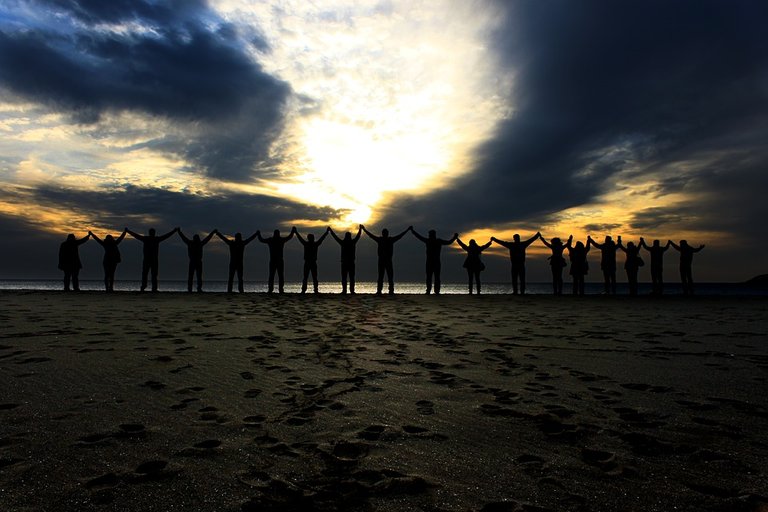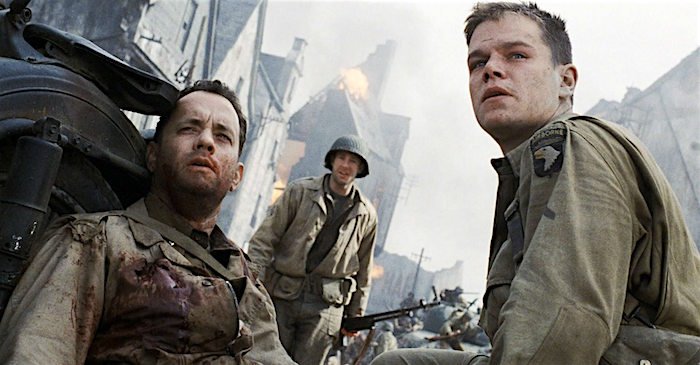Now we all know what Private Ryan must have felt
More Solidarity, More Responsibility
Saving Private Ryan came out in 1998. This was a pivotal time in the history of Venezuela. I remember one phrase that got stuck in my head from the movie. It was dying Captain Miller (Tom Hanks) last words to James Ryan (Matt Damon): “James, earn this. Earn it!” I could imagine the magnitude of the responsibility of a young person who saw people sacrifice their lives so that he lived. I remember thinking, “I do not want to be in his shoes.” As it is evidenced at the end of the movie, Ryan lived a life the best he could, always with the lingering weight of being a good man.
This is the moral dilemma most Venezuelans face these days. Even though, some people may settle it by assuming that when you give, you do it unconditionally, it is not easy to live your life irresponsibly after it has been saved by the generosity of a whole village.
It takes now a village to save a life, any life here. We see children, teenagers, mature men and women, and elders die every day because they could not afford the medical expenses, medications, or procedures. I do not know anyone in Venezuela, regardless of their profession or occupation, who would be able to go through a medical contingency these days without the support of a whole army of family, friends, and just generous anonymous donors. I am talking about people I actually know and their relatives. There are the obvious exceptions of politicians, high rank military, the narcos and their relatives, the traditional rich and the nouveau riche, who belong to a special class of citizenry.
My wife is now dealing with his father’s health issues. Heart attack. Two hospitalizations in a raw. He now needs urgent catheterization that will require the joint efforts of the whole family (once more). We don’t have much money to pitch in, so we try to provide support in any other way possible. A good part of the money to cover IC unit expenses has come from different relatives and friends who live abroad and whose incomes and hearts allow them to give generously.
I can imagine the pressure that my father-in-law or anyone under similar circumstances must feel. The way I see it, your life no longer belong to you. We use to hear expressions like, “It’s my life; I live it the way I please;” It’s my money; I spend it anyway I want;” or “Who cares what happens? That’s what I work for.” These were all common expressions used by people who at some point were doing things that might put them, their health, or their properties at risk.
People felt independent enough to live on the dge if they saw fit and respond for the consequences of their actions (good insurance, savings, properties, or just a great salary). That’s no longer the case. I think that now we are all subjected to people’s generosity to be able to cover basic medical emergencies, more so if it involves serious and complicated ones. Our lives no longer belong to us. They belong somehow to every person who decides to help us keep it.
Even if they do not say it explicitly, I think that there is an implicit pressure to live our lives more responsibly, to earn that support, so that we do not have to appeal to people’s generosity just because we were reckless and did something stupid that put our lives (now somehow mortgaged) on the line again.
There are obviously cases, like old age or chronic diseases, where there is nothing the person can do to lessen the risks. The risks just will be there, also the pressure to avoid knocking at doors too often. It is, in my view, a burdensome feeling of uncertainty, shame, and helplessness, and none of us is exempted now. Now we all know what Private Ryan felt.
Thanks for stopping by



